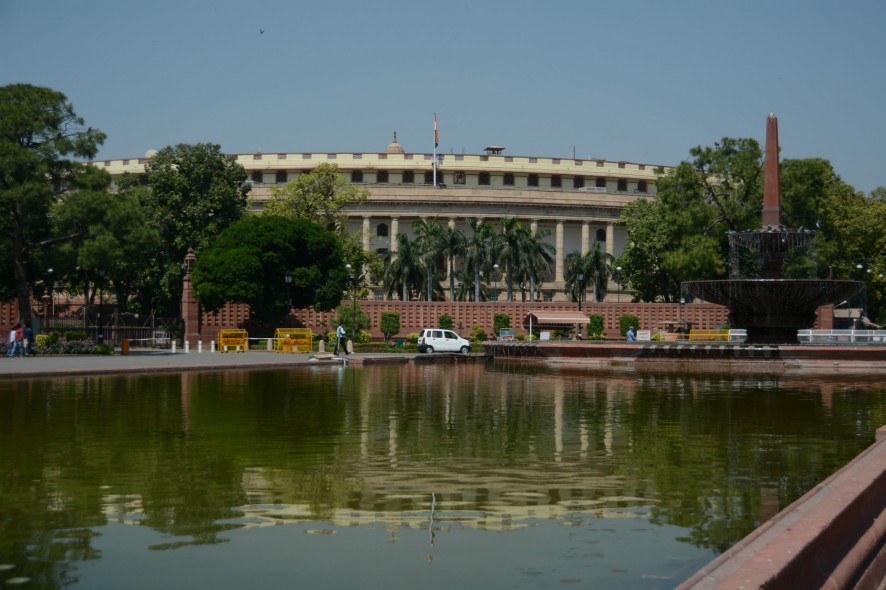Rajya Sabha passed the Indian Institute of Information Technology Public Private Partnership (IIIT-PPP) Bill 2017 on July 27, 2017. The bill has already been passed in Lok Sabha. Dr. Mahendra Nath Pandey, Minister of State (HRD) told in Rajya Sabha that this bill is required to grant degrees to the students IIITs set up in PPP mode. It will also grant statutory status to the fifteen IIITs established in PPP mode and declare them Institutes of National Importance. The salient features of the bill are as follows:
- IIITs in PPP mode has the concerned State Government and industry partners as stakeholders and, therefore, have a different governance structure, including composition of Board of Governors, nomination of Chairman, appointment of Director, etc. It is also supposed to be self-sustainable within 5 years of commencement and, therefore, needs to have appropriate financial process in place.
The Guiding Principle – Provide autonomy to the Institutes but at the same time maintain a fine balance between autonomy and accountability of the IIITs in PPP mode.
The current scheme
- Funding is Centre: State: Industry Partner in the ratio of 50:35:15 (for NER, 57.5:35:7.5). State Government, in addition, provides land.
- The approved project cost of each IIT-PPP is Rs 128 crore to be shared among the Centre, State and industry partner(s) in the above ratio. In addition, Rs 10 crore to be provided by the central government for recurring expenditure.
Current Status of IIITs-PPP
- Total 15 started so far and covered by the Bill:
? 5 (five) in 2013-14 at Kota, Chittoor, Guwahati, Vadodara, Tiruchirapalli.
? 3 (three) in 2014-15 – Sonepat, Kalyani, Una
? 4 (four) in 2015-16 – Lucknow, Senapati, Dharwad, Kottayam
? 3 (three) in 2016-17 – Nagpur, Pune, Ranchi
- 3 (three) to start in 2017-18 – Bhopal, Surat, Bhagalpur
› Consultation Process
- Inter-ministerial, including Finance and Law
- Draft Bill was uploaded on website and comments were invited.
- Draft Bill was also circulated earlier to State Governments and Institutes and comments were invited till 30th December 2016
- Intensive consultation with all stakeholders (concerned State Governments, industry partners, Chairpersons and Directors of the Institutes) on 23rd December 2016
Some important provisions of the Bill
>Role of Industry Partner(s) [S. 11(6)]
- Expected to contribute towards research labs and projects, internship, faculty chairs etc. from time to time.
- Depute industry professionals as adjunct faculty
- Students to do research projects with Industry professionals as mentors.
- Faculty to have sabbaticals for short period with industry.
- Internship, job opportunities for students of IIITs
- Sponsor PhDs. For employees of Industry.
- To provide inputs on course curriculum
› Board of Governors (S. 14)
- The Board of Governors shall be the principal policy making and executive body (In case of centrally funded IIITs/IITs/NITs, important policy decisions are taken by the IIIT Council).
- All members, other than the Chairperson and nominees of Central/State Govt. and Industry Partners, shall be appointed by the Board (unlike centrally funded IIITs in which IIIT Council nominates 4 members to the BoG).
- The Chairperson shall be nominated by the Visitor.
- The BoG has the power to grant degrees, diplomas, fellowships and scholarships.
- BoG has to put in place policies to make the institute self-sustaining in 5 (five) years.
- The Board has the power to conduct enquiry against the Director (S. 23).
› Appointment of Director (S. 23)
- The process of appointment of Director is initiated by the Board itself.
- Chairperson of BoG is also the Chairperson of the Search-cum-Selection Committee (ScSC) (In Central Government funded IIITs, chairperson of ScSC is separately nominated by the the Minister of HRD).
- Representatives of private partner, State / Central Govt in ScSC.
- Two other members of ScSC to be nominated by the Board itself from amongst eminent technocrats, industrialists, administrators, educationists, scientists, etc. (In centrally funded IIITs, one eminent person is nominated by the Minister, HRD).
- Visitor is the approving authority.
› Coordination Forum (S. 38)
- It has only coordination and advisory role and not of policy making (unlike centrally funded IIITs which also have policy making role).
- Chaired by Minister, HRD.
- Directors of all institutes are members
- Three persons having special knowledge in industry, academia etc.
- Representations provided by rotation- Four each from State Govts., Chairpersons of IIIT PPP and Industry Partners- to keep it at a reasonable size.
- Official representations are very limited.
› Financial Provisions and Audit (Chapter-IV)
- The Central & State Govts. both may pay to the institute funds after due appropriations including scholarships or fellowships (S. 26).
- The Board may create endowment funds for receiving donations (S. 27).
- The accounts shall be audited by CAG or any other person appointed in accordance with the provisions of the extant rules (S. 28).
Ministry of Human Resource Development






